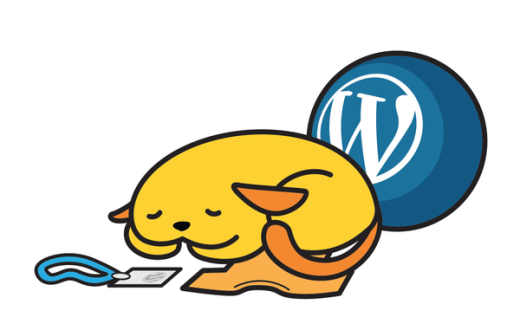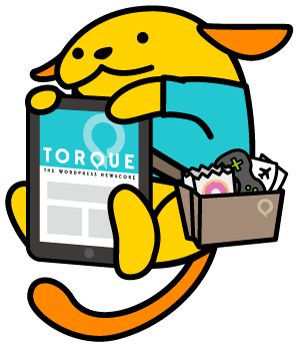Another year is coming to an end. And, in the world of WordPress, so much has happened. It’s been a year filled with Wappuus, WordCamps, APIs, and important milestones. In no particular order, let’s take a look at 10 of the most talked about things to happen in the WordPress ecosystem in 2015.
25 Percent Of The Internet
It wouldn’t be a 2015 roundup if we didn’t mention the biggest thing to happen this year. At the beginning of November, W3Tech, a web technology survey company, showed that WordPress is used by 25 percent of the Internet — that’s one in every four sites.
This is the biggest milestone WordPress has reached so far and we would be remiss if we didn’t keep talking about it. This isn’t a time to sit on our laurels, but instead to look toward the remaining 75 percent.
The WordPress Foundation Vs Jeff Yablon
June started off with a bit of WordPress controversy. Jeff Yablon, owner of The WordPress Helpers, was sued by The WordPress Foundation for trademark infringement. Yablon owned four domain names that the WordPress Foundation claimed were violating policy. The foundation asked Yablon to stop using the trademarks and pay $100,000 in damages.
Things were settled out of court. Yablon agreed to stop using the trademarks, transfer all domain names, and acknowledge that WordPress Foundation owns all the rights. The WordPress Foundation agreed to drop legal proceedings, including the $100,000 fee, and redirect the domains of Yablon’s choice for six months.
WP REST API Will Be Included In Core
The WP REST API gained momentum in 2015. Phase one, the REST API scaffolding, has been included in the recent WordPress 4.4 update. The inclusion of endpoints, phase two, is next and slated for an upcoming release.
The WordPress REST API makes building custom APIs easier than ever, which opens up a new world opportunity for WordPress. It seamlessly allows WordPress to interact with other non-WordPress websites on the Internet using JSON.
First Ever WordCamp US
Many of us are still catching up on missed sleep from the first ever WordCamp US in Philly. The process started back in July when the WordPress community voted that Philidelphia would be the location for the 2015 and 2016 WordCamp US.
It was a huge event that saw over 1,800 attendees, and even more tuned in on the live stream. For some, WordCamp US kicked off early with The Community Summit on December 2-3 and ended late with the contributor day on December 6.
WordCamp concluded with Matt Mullenweg’s annual State of the Word address. Mullenweg covered all of the biggest news of the year, WP REST API, WordPress 4.4, and Calypso. His final words were poignant and fitting, “learn JavaScript deeply.”
EU VAT Legislation And WordPress
The year started off with the EU changing how the VAT is applied to products that are purchased within the EU. Before this, the VAT was only applied in the seller’s country, not where the item was purchased. Though this was a great thing for big corporations, it didn’t do much for small online businesses. The ruling did away with the minimum thresholds for VAT registration.
How does this affect WordPress users? For one thing, you will have to pay more attention to which country your customers are ordering from to know if you owe VAT. For small businesses this can be hard to tell by email address alone, so we suggest adding a “location” field to your order form. If that option doesn’t suit you, many companies have already jumped in to solve the problem with plugins, notably WooCommerce EU VAT Compliance. The plugin determines your customer’s location, keeps a record of all the taxes you’ve paid, forbids orders that do not comply with the new law, and more. If you find yourself dealing with customers in the EU, this app is the best way to make sure you’re in VAT compliance.
The plugin determines your customer’s location, keeps a record of all the taxes you’ve paid, forbids orders that do not comply with the new law, and more. If you find yourself dealing with customers in the EU, this app is the best way to make sure you’re in VAT compliance.
Hello, Calypso
2015 saw the overhaul of WordPress.com with the release of Calypso. The new WordPress.com introduces several new conveniences for its users. Probably one of the most interesting things about Calypso, however, is that it is 100 percent JavaScript.
Matt Mullenweg talked about this extensively in his State of the Word address, saying JavaScript and APIs are the way of the future of the web. This doesn’t mean you’ll have to completely relearn everything you knew about WordPress, but you should probably brush up on your JavaScript.
Another notable thing about Calypso is that it is all open source, so you can make changes and suggestions on GitHub.
WooCommerce Acquisition
In May, we saw one of the biggest acquisitions in WordPress history. Matt Mullenweg announced that Automattic purchased WooCommerce, which powers more than 30 percent of eCommerce websites. It marked Automattic’s largest acquisition adding, 55 employees from 16 different countries.
Automattic didn’t rebrand any of Woo’s products but instead it wants to expand their customer base and give WordPress users more options for selling things. The acquisition not only affected the WooCommerce owners, but also third party designers and developers who will now gain exposure and hopefully customers.
The Rise Of The Wapuu
If you’re like me, you love a good Wapuu. Whether it is holding a cheesesteak, the WordPress logo, or a baseball, I cannot get enough. This year, more and more companies, events, and individuals created their own custom Wapuus. There’s even an after-WordCamp Wapuu.
Not wanting to be left behind, earlier this year, Torque held a Wapuu contest to find a mascot all our own. Michelle Schulp came through, and we were not disappointed.
Automattic Won Thesis.com Battle
This summer posed a battle between Automattic and Chris Pearson, over the rights to Thesis.com. It all began when Pearson and Automattic were both approached by a third party interested in purchasing Thesis.com. Automattic won the bid with $100,000 and the site was transferred to their ownership.
Pearson was unhappy with the decision and filed a domain dispute with the National Arbitration Forum, and three people were assigned to a panel to investigate the case.
In July, Domain Name Wire reported that the case was decided in Automattic’s favor. The panel found that Pearson didn’t have enough evidence to prove that Automattic was using the domain to mislead the consumer, which was his main concern. The decision was controversial because the panel accepted Automattic’s response five days late, which directly violates one of their rules.
Torque Turned Two
Torque celebrated its second birthday in July. It launched at WordCamp San Francisco in 2013, and a lot was accomplished in those two years. The site has featured content from over 50 writers throughout the community, drawing from developers, designers, and more. We have a global reach, with the US, UK, and India making up our biggest readership.
We are so excited to see where WordPress goes in 2016, and will be here covering every bit of it. Thanks for a great year, and onto many more.
What were your favorite WordPress memories of 2015? What are you looking forward to in 2016?
Featured image via Streetwil.co



5 Comments